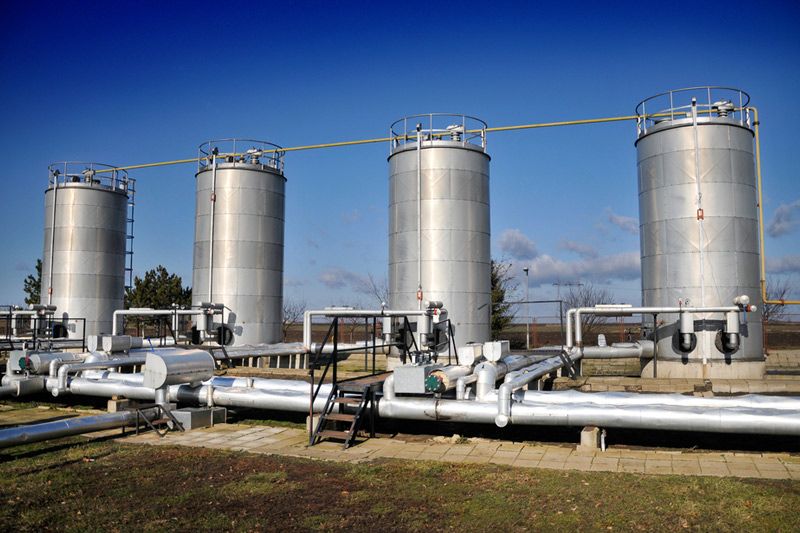(Repeats with no changes to text)
By Clyde Russell
LAUNCESTON, Australia, Feb 29 (Reuters) - - In theory these should be great days for the liquefied natural gas (LNG) industry as new plants are commissioned to supply the clean-burning fuel to energy hungry markets across rapidly developing Asia.
But in reality the industry is facing uncertainty as low prices damage the economics of multi-billion dollar investments and the expected demand growth fails to materialise.
As is normally the case in complex markets, there is no single villain. Rather there are several factors hurting the industry's fortunes and casting doubts over whether natural gas and LNG will ever see the golden age predicted a few years ago.
The main obstacle for LNG in Asia appears to be price, not just that it's higher than competing fuels but also the way it's calculated that does little to boost demand.
Most of the LNG supplied into Asia is priced on long-term contracts, indexed to the price of crude oil. What this means is that LNG prices take longer to adjust to changes in the prices of oil and coal, providing a headstart to competing fuels when utilities make purchasing decisions.
Japan's total LNG imports, which include both term and spot cargoes, landed at an average cost of $7.78 per million British thermal units (mmBtu) in January, according to official data.
This was down 48 percent from a year ago, which looks like a big drop versus a 34 percent drop in crude oil over the period.
But crude oil's big price decline was in 2014, when it plunged 48 percent. In contrast, Japan's LNG prices fell a mere 9.9 percent during that year.
This shows that the drop in the price of LNG paid by the world's biggest importer of the fuel took far longer to come through than it did for oil.
Coal prices, as measured by the benchmark weekly index at Australia's Newcastle port GCLNWCWIDX , dropped 25.4 percent in 2014 and a further 22 percent last year.
However, while coal hasn't fallen by as much as LNG in percentage terms over the past two years, it is still way cheaper in terms of the dollar cost of energy produced.
A tonne of hard coal equates to roughly 27 mmBtu of thermal energy, and a tonne currently costs around $51.29.
To generate the same amount of energy from LNG would cost about $121.50, based on the current Asian spot LNG LNG-AS price of $4.50 per mmBtu.
Even low-rank coal, which may provide more like 15 mmBtu of energy per tonne, is cheaper than LNG.
The competitiveness of coal may partially explain why Japan's thermal coal imports rose 4.8 percent last year while LNG imports fell 3.9 percent.
As long as utilities can use coal, they will prefer it over LNG, with the limiting factor being how much generating capacity they have for each fuel type and concerns around emissions from dirtier coal.
CHINA CONUNDRUM
If Japan is a weak story for LNG demand growth, then surely China should be a bright spot, especially given Beijing's emphasis on reducing coal use.
But China's LNG imports declined 1 percent last year, and once again price appears to be a strong factor.
China's LNG imports cost an average $7.64 per mmBtu in December last year, while pipeline imports from Central Asia and Myanmar averaged $6.01.
This gap widened last month, with LNG costing $7.32 per mmBtu, but pipeline imports falling to $5.82, underscoring the tough environment for LNG in China.
Natural gas pricing rules in China also appear to work against LNG, as once again the regulated price seems to operate with large lags against competing fuels.
Prices were last adjusted in November last year, the second such adjustment in 2015.
While lower prices improve the economics for importing LNG and pipeline natural gas, the prices for oil-based fuels are adjusted far more frequently and coal prices move daily in line with market dynamics.
Chinese natural gas prices are set according to the price of competing fuels such as liquefied petroleum gas and fuel oil. But since prices for these products are more dynamic, industrial gas users can find it cheaper to switch away from natural gas.
In China, natural gas prices are effectively linked to moves in oil prices, and adjusted with lags of several months, meaning that natural gas consumers face higher prices if oil rises, even if LNG prices remained stable.
This means demand for natural gas could come under pressure from higher prices, even though the Asian spot price for LNG hasn't shifted much.
"What China really needs is prices that reflect the supply and demand for gas in the country and such a reform seems a long way off," is how consultancy Energy Aspects put it in a Feb. 24 report, in which they concluded that China's LNG demand will only "drift" higher on some increase in underlying demand.
But it's not all doom and gloom for LNG, with other emerging markets in Asia able to take up some of the increased supply that is coming on stream from big Australian and U.S. projects.
What is, however, becoming increasingly clear is LNG needs a different pricing mechanism to be viable in the longer term.
Oil-linked contracts with restrictive destination and other clauses will do little to develop the market.
At the same time, the industry should be lobbying as hard as it can to get more supportive regulatory and pricing regimes in place in major consuming nations in Asia. (Editing by Himani Sarkar)
